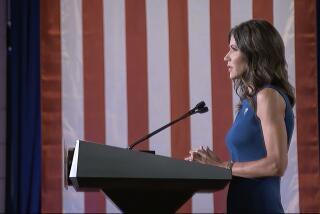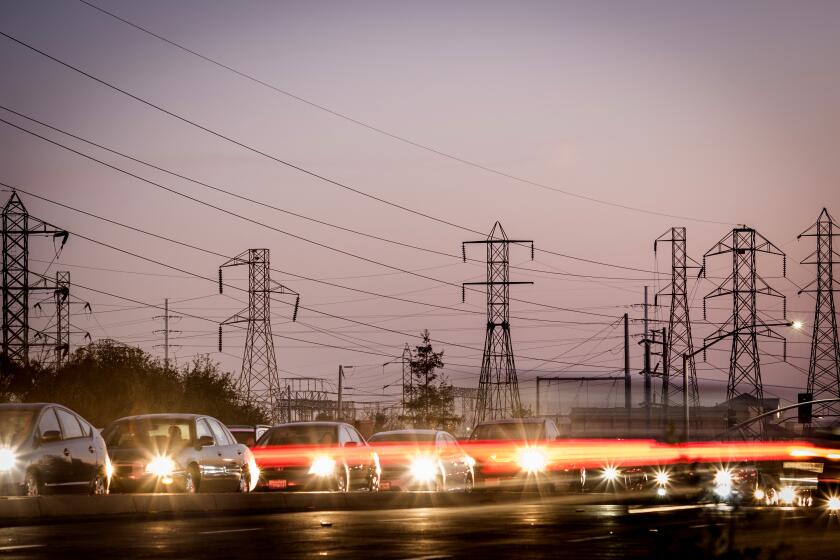WASHINGTON INSIGHT
THE CRANSTON CARD?: California Sen. Alan Cranston’s involvement in the “Keating Five” savings and loan scandal is proving to be explosive ammunition for Republican political cannons this year. In Alabama, Republican Senate challenger Bill Cabaniss is calling on Sen. Howell Heflin (D-Ala.) to resign as chairman of the Senate Ethics Committee because of a $2,000 campaign contribution he received last year from Cranston’s political action committee, the Committee for a Democratic Consensus.
Heflin’s aides insist the incumbent Alabama senator did not initially realize the money was from Cranston; he returned the contribution in August after discovering that Cranston controlled the PAC. But Cabaniss is now launching television ads criticizing Heflin for his relationship with Cranston.
EVAPORATING VOTERS: Voter turnout in the 1990 primary campaigns dipped slightly below the already low levels for the two previous off-year campaigns in 1986 and 1982, the Committee for the Study of the American Electorate reports. That means that once again more than 80% of Americans of voting age failed to cast their ballots in these nominating contests. The figures are based on turnouts in 26 states in which both Democrats and Republicans held primaries--with a total voting age population of more than 120 million.
According to the report, the 1990 turnout rate of 19.6% was based on an average Democratic turnout of 11.9% of the total--down a bit from 1986--and a Republican rate of 7.7% of the total, up slightly from 1986, according to Curtis Gans, the nonpartisan committee’s executive director.
Gans says impressive turnout figures in last month’s primaries in the District of Columbia (28%, the highest since the city was granted home rule) and Massachusetts (which posted a 32% turnout that was its highest since 1962) mainly reflected local conditions, even though both were touted by some analysts as signaling a nationwide voter rebellion.
MONEY TALKS: Weary of unreliable opinion polls on political campaigns, University of Iowa researchers have devised their own forecasting scheme based on the old adage: Put your money where your mouth is. They have created a sort of mini-stock market in which eligible investors--nearly 200 students and faculty members--buy and sell shares in candidates as if the contenders were companies. Traders start off by paying $1 for a share of each candidate, and prices then fluctuate based on perceptions of each candidate’s chances of success.
Shares in Iowa Democratic Sen. Tom Harkin were selling last week for $1.05--down a few cents from the previous week--while shares in his Republican challenger, Rep. Tom Tauke, were up to 95 cents. The trend parallels swings in a recent public opinion poll on the contest, which is proving to be one of the closest in the country. But economist Bob Forsythe thinks the “market” approach is more reliable. “When people put their money in, they have a greater incentive to get informed,” Forsythe said. Having a few bucks at stake eliminates the common polling tendency for interviewees to give unreliable answers because they are basically indifferent or uninformed.
As proof of how well the Iowa Political Stock Market works, Forsythe cites its first test--the 1988 presidential election. On the day before the vote, the going price for Dukakis and Bush shares indicated a 7.6% victory for Bush. His actual margin: 7.8%.
More to Read
Get the L.A. Times Politics newsletter
Deeply reported insights into legislation, politics and policy from Sacramento, Washington and beyond. In your inbox three times per week.
You may occasionally receive promotional content from the Los Angeles Times.






